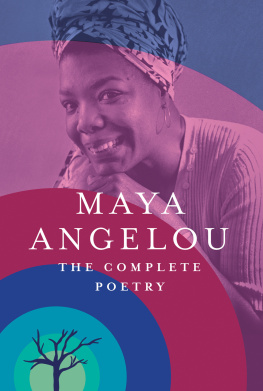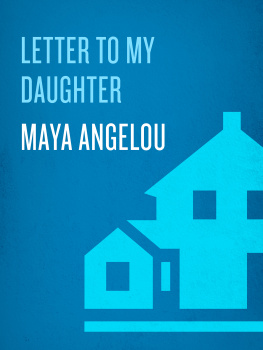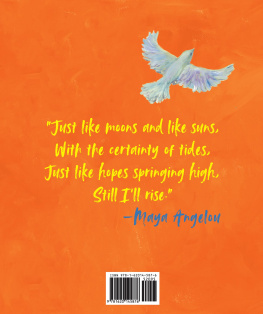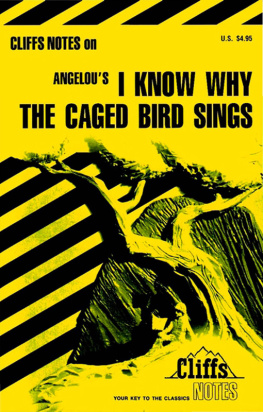
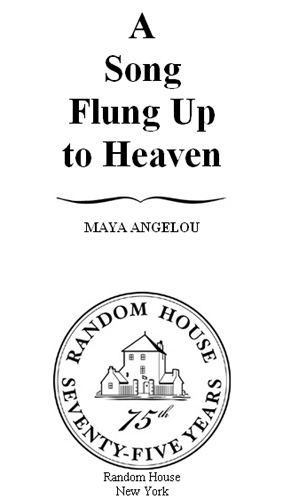
Dedicated to
Caylin Nicole Johnson
Brandon Bailey Johnson
and to my entire family
wherever and whoever
you are
Acknowledgments
I thank seven of my living teachers:
The Reverends
Frederick Buechner
Eric Butterworth
Serenus T. Churn, Sr.
H. Beecher Hicks
Barbara King
Cecil Williams
Andrew Young
Contents
One
The old arks a-movering
a-movering
a-movering
the old arks a-movering
and Im going home.
Nineteenth-century American spiritual
The old ark was a Pan Am jet and I was returning to the United States. The airplane had originated in Johannesburg and stopped in Accra, Ghana, to pick up passengers.
I boarded, wearing traditional West African dress, and sensed myself immediately, and for the first time in years, out of place. A presentiment of unease enveloped me before I could find my seat at the rear of the plane. For the first few minutes I busied myself arranging bags, souvenirs, presents. When I finally settled into my narrow seat, I looked around and became at once aware of the source of my discomfort. I was among more white people than I had seen in four years. During that period I had not once thought of not seeing white people; there were European, Canadian and white American faculty at the university where I worked. Roger and Jean Genoud, who were Swiss United Nations personnel, had become my close friends and in fact helped me to raiseor better, corralmy teenage son. So my upset did not come from seeing the white complexion, but rather, from seeing so much of it at one time.
For the next seven hours, I considered the life I was leaving and the circumstances to which I was returning. I thought of the difference between the faces I had just embraced in farewell and those on the plane who looked at me and other blacks who also boarded in Accra with distaste, if not outright disgust. I thought of my rambunctious nineteen-year-old son, whom I was leaving with a family of Ghanaian friends. I also left him under the watchful eye and, I hoped, tender care of God, who seemed to be the only force capable of controlling him.
My thoughts included the political climate I was leaving. It was a known fact that antigovernment forces were aligning themselves at that very moment to bring down the regime of Kwame Nkrumah, Ghanas controversial, much adored but also much hated president. The atmosphere was thick with accusations, threats, fear, guilt, greed and capriciousness. Yet at least all the visible participants in that crowded ambience were black, in contrast to the population in the environment to which I was returning. I knew that the air in the United States was no less turbulent than that in Ghana. If my mail and the world newspapers were to be believed, the country was clamoring with riots and pandemonium. The cry of burn, baby, burn was loud in the land, and black people had gone from the earlier mode of sit-in to set fire, and from march-in to break-in.
Malcolm X, on his last visit to Accra, had announced a desire to create a foundation he called the Organization of African-American Unity. His proposal included taking the plight of the African-Americans to the United Nations and asking the world council to intercede on the part of beleaguered blacks. The idea was so stimulating to the community of African-American residents that I persuaded myself I should return to the States to help establish the organization. Alice Windom and Vickie Garvin, Sylvia Boone and Julian Mayfield, African-Americans who lived and worked in Ghana, were also immediate supporters. When I informed them that I had started making plans to go back to America to work with Malcolm, theymy friends, buddies, palsbegan to treat me as if I had suddenly become special. They didnt speak quite so loudly around me, they didnt clap my back when laughing; nor were they as quick to point out my flaws. My stature had definitely increased.
We all read Malcolms last letter to me.
Dear Maya,
I was shocked and surprised when your letter arrived but I was also pleased because I only had to wait two months for this one whereas previously I had to wait almost a year. You see I havent lost my wit. (smile)
Your analysis of our peoples tendency to talk over the head of the masses in a language that is too far above and beyond them is certainly true. You can communicate because you have plenty of (soul) and you always keep your feet firmly rooted on the ground.
I am enclosing some articles that will give you somewhat of an idea of my daily experiences here and you will then be better able to understand why it sometimes takes me a long time to write. I was most pleased to learn that you might be hitting in this direction this year. You are a beautiful writer and a beautiful woman. You know that I will always do my utmost to be helpful to you in any way possible so dont hesitate.
Signed
Your brother Malcolm
I looked around the plane at the South African faces and thought of Vus Make, my latest husband, from whom I had separated. He and members of the Pan-African Congress and Oliver Tambo, second in command of the African National Congress, really believed they would be able to change the hearts and thereby the actions of the apartheid-loving Boers. In the early sixties I called them Nation Dreamers. When I thought of Robert Sobukwe, leader of the Pan-African Congress who had languished for years in prison, and Nelson Mandela, who had recently been arrested, I was sure that they would spend their lives sealed away from the world. I had thought that, despite their passion and the rightness of their cause, the two men would become footnotes on the pages of history.
Now, with the new developments about to take place, I felt a little sympathy for the Boers, and congratulated myself and all African-Americans for our courage. The passion my people would exhibit under Malcolms leadership was going to help us rid our country of racism once and for all. The Africans in South Africa often said they had been inspired by Martin Luther King, Jr., and the Montgomery bus boycott of 1958. Well, we were going to give them something new, something visionary, to look up to. After we had cleansed ourselves and our country of hate, they would be able to study our methods, take heart from our example and let freedom ring in their country as it would ring in ours.
Sweet dreams of the future blunted the sharp pain of leaving both my son and the other important man in my life. Given enough time, Guy would eventually grow up and be a fine man, but my romantic other could never fit into my world, nor I into his.
He was a powerful West African who had swept into my life with the urgency of a Southern hurricane. He uprooted my well-planted ideas and blew down all my firmly held beliefs about decorum.
I had been in love many times before I met him, but I had never surrendered myself to anyone. I had given my word and my body, but I had never given my soul. The African had the habit of being obeyed, and he insisted on having all of me. The pleasure I found with him made me unable, or at least unwilling, to refuse.
Within a month of conceding my authority over myself and my life to another, I realized the enormity of my mistake. If I wanted chicken, he said he wanted lamb, and I quickly agreed. If I wanted rice, he wanted yams, and I quickly agreed. He said that I was to go along with whatever he wanted, and I agreed. If I wanted to visit with my friends and he wanted to be alone but not without me, I agreed.
Next page

